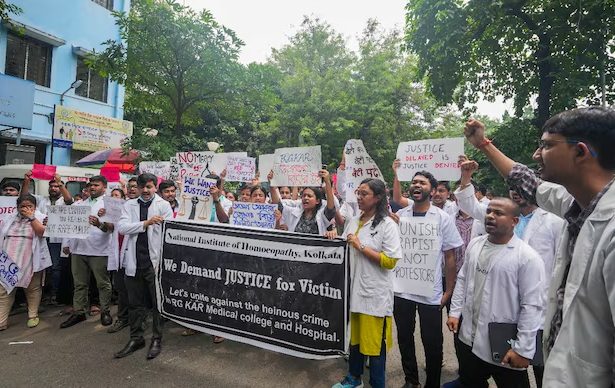In a decisive response to recent protests by healthcare professionals, the West Bengal government has issued a series of directives aimed at enhancing the safety and security of healthcare staff across the state. This initiative comes in the wake of widespread unrest following the tragic rape and murder of a trainee doctor at Kolkata’s RG Kar Medical College and Hospital on August 9. The incident raised serious concerns about the working conditions and security measures in place for medical personnel, prompting junior doctors to demand urgent reforms.
Key Directives for Improved Healthcare Security
Following a meeting with protesting doctors in Kolkata, the Mamata Banerjee-led government outlined several measures designed to create a safer working environment. These measures include:
- Essential Facilities: The government has mandated the immediate availability of on-duty rooms, washrooms, CCTVs, and drinking water facilities at various healthcare institutions. Ensuring these amenities is seen as vital for the comfort and safety of medical staff.
- Security Audits: A comprehensive security audit of all medical colleges and hospitals in West Bengal has been ordered. This audit will be conducted by Surajit Kar Purkayastha, the Chairman of the Satyendranath Tagore Civil Services Study Centre and former Director General of Police (DGP) of West Bengal. The audit aims to identify vulnerabilities and enhance safety protocols across healthcare facilities.
- Deployment of Security Personnel: The government has emphasized the need for adequate police and security personnel, including female officers and guards, to be stationed at every healthcare facility. These deployments will be made in consultation with the Home Department to ensure robust security measures.
- Mobile Police Teams: Local police authorities are instructed to deploy mobile teams for surveillance, particularly during night hours, to ensure the safety of both healthcare workers and patients.
- Centralized Helpline and Panic Systems: A centralized helpline has been established, along with panic call button alarms and access control systems, to enhance emergency response capabilities in hospitals. These systems are intended to provide healthcare staff with immediate assistance during critical situations.
- Real-Time Bed Availability System: The government is set to operationalize a centrally monitored real-time bed availability information system at all government facilities. This system will be complemented by digital displays showing bed availability, ensuring that the public has easy access to crucial information.
- Centralized Referral System: A centralized referral system will also be put into operation to streamline patient transfers and enhance healthcare coordination across facilities.
- Grievance Redressal System: Recognizing that issues may still arise during the implementation of these directives, the government will establish a robust grievance redressal system. This system will be designed to address the concerns of healthcare professionals, patients, and their attendants in a timely manner.
- Immediate Action on Vacancies: The government has committed to taking immediate steps to fill vacant positions for doctors, nurses, and other critical healthcare staff to ensure that healthcare facilities are adequately staffed.
- State-Level Task Force: A State Level Task Force will monitor the progress of these implementations and ensure that the directives are being followed effectively.
Context of the Directives
These measures were prompted by a series of demands presented by junior doctors to Chief Secretary Manoj Pant. Their requests focused on improving working conditions, enhancing security, and addressing infrastructure deficiencies within the healthcare system. The protests highlighted significant concerns regarding the lack of key facilities, such as restrooms, security measures, and grievance redressal systems, which are essential for maintaining a safe working environment.
The West Bengal government’s swift actions reflect a commitment to ensuring the safety and well-being of healthcare professionals in the state. By addressing the concerns raised by doctors and implementing these critical measures, the government aims to foster a secure and efficient healthcare environment. As these directives are put into practice, it will be essential for all stakeholders, including medical staff and patients, to engage with the newly established grievance redressal system to ensure that their concerns are heard and addressed.
These developments signal a crucial step toward improving the overall healthcare infrastructure in West Bengal, ultimately benefiting both healthcare workers and the communities they serve. For ongoing updates on these initiatives, stakeholders are encouraged to follow official government communications and news reports.


